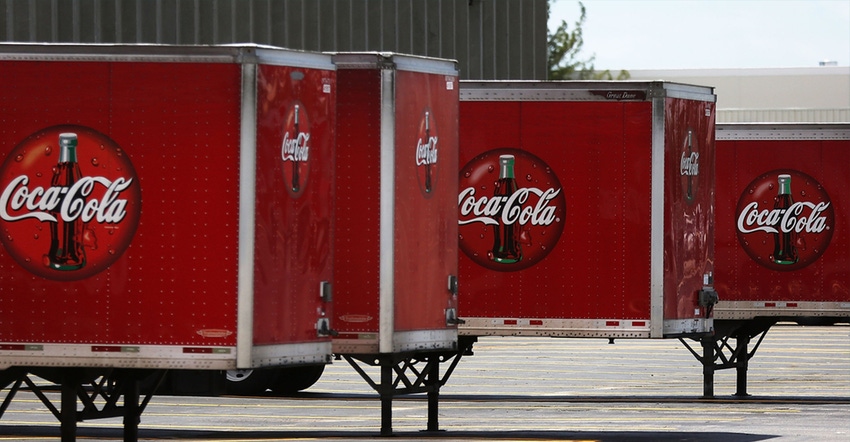Coca-Cola European Partners Invests in CuRE to Recycle PET

Coca-Cola European Partners (CCEP) is continuing its work to drive a closed-loop system, most recently investing in an up-and-coming technology to turn mountains of waste plastic bottles into new bottles with virgin-like properties. CCEP’s new funding venture is supporting a partial depolymerization process developed by start-up CuRe Technology.
Terms of the deal are confidential, but plans are to back CuRe in accelerating the development of its technology from pilot plant to commercial readiness, ultimately enabling CCEP to increase recycled PET in its packaging and get closer to its goal of eliminating virgin PET bottles altogether.
“Through the process of partial depolymerisation, we transform hard-to- recycle, lower-grade PET into its smaller components – a bit like ‘building blocks’ – in much the same way that a ‘reset’ button might operate,” explains Josse Kunst, chief commercial officer at CuRe Technology.
“Once broken down into these ‘building blocks’, our process removes impurities such as colored pigments, then repolymerizes or ‘rejuvenates’ these PET ‘building blocks’ into clear polyester pellets of the same grade and quality as virgin oil-based PET,” Kunst says.
CuRe’s continuous-process technology will provide all the necessary steps to sort waste polyester, process it (via partial depolymerization), and convert it into 100% recycled polyester at one site.
“Support for these emerging technologies can move us closer to the possibility of returning material value to difficult-to-recycle PET that may currently be excluded from mechanical recycling streams, so that it can be upcycled into new high-quality PET for use in food and drink packaging, not just once but again and again,” says Dim Mozin, procurement director, Coca-Cola European Partners.
Joe Franses, vice president, Sustainability at Coca-Cola European Partners, describes CuRe as an exciting technology start-up with transformational potential developed by an experienced consortium.
He comments in a statement, “Our investment in CuRe underlines our commitment to supporting innovations that have the potential to drive growth in our business and our sustainable packaging goals. It also offers us the potential to access vital rPET volumes that will help to accelerate delivery of our 100% rPET ambition.”
CCEP’s funding of CuRe builds on Coca-Cola’s existing investments to explore and support the scaling of full depolymerisation recycling technologies. Other partnerships to improve recyclability of its packaging have included those with recycling innovators Ioniqa, Loop and DEMETO gr3n.
With Loop, CCEP entered a multi-year supply agreement to purchase products to go into packaging in Western Europe, though the search is on for enough material.
With Ioniqa, the technology has been validated at the pilot scale. Now Coca-Cola will support scaling-up in preparation for commercialization.
Coca-Cola has also been involved with tech company gr3n and the European project DEMETO, focused on the depolymerization of PET at scale. In this capacity, Coca-Cola has joined an industrial advisory board with other packaging manufacturers, plastic converters, waste collectors and recyclers in order to help advise on the build-out of technology.
Not only does this chemical recycling process enable transformation of opaque and hard-to-recycle food-grade PET to quality recycled PET, eventually it will also work for other food-grade applications, such as food trays, dairy products and spirits, believe its inventors.
Once operational, CuRe Technology could potentially support CCEP in reaching for its decade-out goal: having zero virgin oil-based PET in its bottles. Reaching this milestone will ultimately contribute to the removal of over 200,000 tons of virgin plastic from CCEP’s packaging portfolio a year.
CCEP and Coca-Cola in Western Europe have set a timeline to reach toward this tall goal: they have pledged that at least 50% of the content of Coca-Cola PET bottles will come from recycled content by 2023. And they have pledged that by 2025, Coca-Cola will collect a can or bottle for each one sold, as well as ensure that all its packaging is 100% recyclable.
About the Author(s)
You May Also Like




